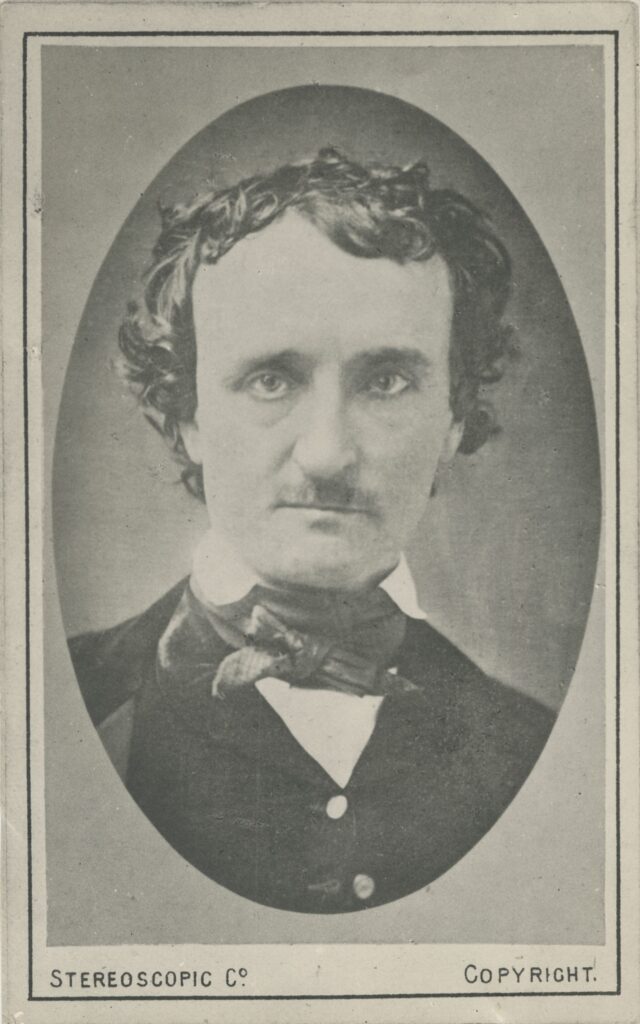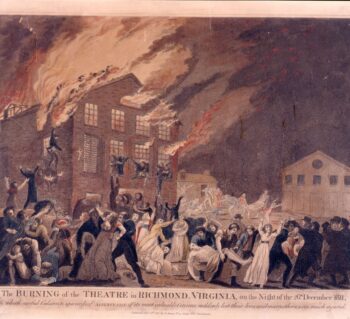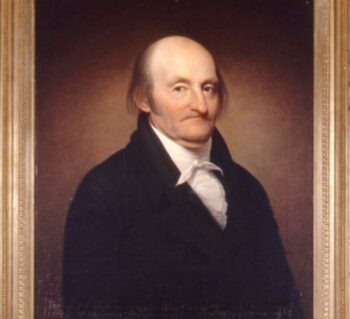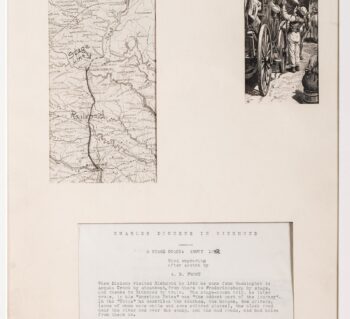
Edgar Allan Poe: Richmond History Maker
Edgar Allan Poe was no stranger to loneliness, financial trouble and depression. He even invented a new literary genre that aimed to inspire dread in its simplest, shortest and purest form.
By Valentine Museum Staff
Poe was born in 1809 to parents who were both travelling actors. When he was just two years old, his mother died of tuberculosis in Richmond, while acting in a local company. Poe’s father, from whom his mother was estranged, died soon after. Poe’s mother was buried at St. John’s Church in Richmond, and a local childless couple, John and Frances Allan, adopted the orphaned toddler.
A tobacco merchant, Allan hoped that his adopted son would eventually take over his business. But Poe, from an early age, was determined to be a poet. Allan paid for Poe’s first year at the University of Virginia, but the young poet accumulated gambling debts and seemed aimless. His adoptive father cut him off financially, the first of many times over the course of Poe’s life. Shortly after this blow, Poe’s fiancée, Sarah Elmira Royster of Church Hill, gave into parental pressure and abandoned him to marry a wealthy man.
Poe left Richmond in 1826 heartbroken, though he continued to write. After publishing his first book, he remained unable to support himself and so tried brief stints in the Army, then West Point, from which he was expelled. All the while, John Allan sometimes helped his ward financially, only cutting him off again for misbehavior.
In 1831 while living in Baltimore, Poe began to attract notice as a writer. But he was still struggling financially and periodically wrote home to Allan for money. These letters, some archived here at the Valentine, went without reply. In 1835, he was offered the job of assistant editor at the Southern Literary Messenger, a new literary magazine based in Richmond. He took it, and so returned to this city. Despite a clear drinking problem that fueled professional clashes, his brilliance stood out. Poe was soon promoted to editor. Under his leadership, the Messenger became successful. He used the journal not only to publish his poems and short stories, but also wrote humorous and often brutal literary criticism. Few authors were spared. Poe left the Messenger and Richmond in 1837, for literary pursuits northward.
In 1839, Poe published The Fall of the House of Usher. In 1845, The Raven was unleashed. As his writing darkened, however, his personal life darkened as well. His relentless criticism of other writers, the death of his wife, his defiant personality and the financial bankruptcy of his own journal in New York left him alienated, unable to publish, destitute, depressed and grieving. He accumulated debts.
In 1849, he returned to Richmond to give a reading and lecture on The Raven. The homecoming provided him the opportunity to change his life when he reunited with the recently widowed and now-wealthy fiancée who had jilted him 23 years before. He seized it. Poe decided to marry his beloved Elmira at last and return to life here. But the move never happened. Just weeks after deciding to turn this new, optimistic page, amidst his arrangements to move back to Richmond, Poe was found unconscious outside of a tavern in Baltimore. He died in a hospital four days later. The previous few months had taken their toll on Poe, so much so that scholars have multiple theories as to how he met his end.
He was only 40 years old, but Poe transformed the alienation and despair that defined his life into a literary legacy that still inspires dread (in a good way) today.

Need to cite this?
| Authors | Valentine Museum Staff |
|---|---|
| Work Title | Edgar Allan Poe: Richmond History Maker |
| Website | https://thevalentine.org |
| Published | October 11, 2023 |
| Updated | May 24, 2024 |
| Copyright | © 2024 The Valentine Museum |


